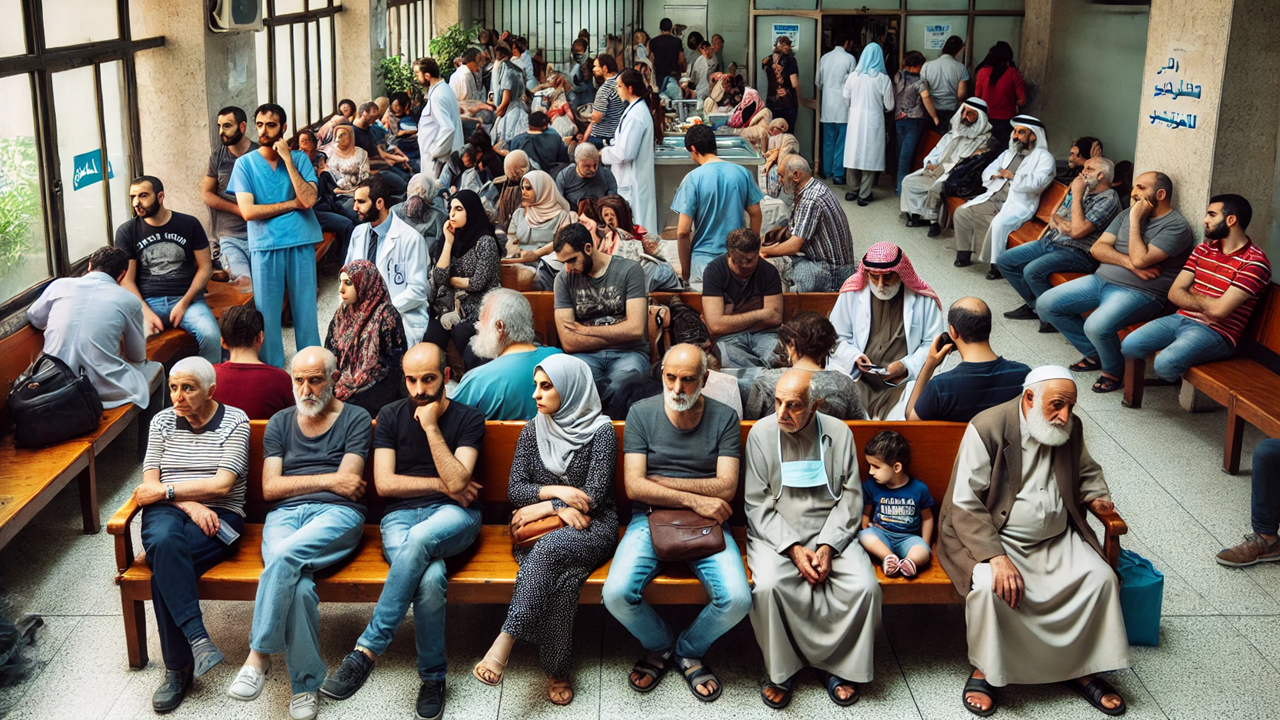Lebanon's Healthcare Crisis: A Path to Universal Health Coverage
Lebanon's healthcare system is in crisis, exacerbated by socioeconomic and political challenges. The World Bank proposes four reform options to ensure universal health coverage: a government-funded system, social health insurance, multiple private health insurers, and a single private health insurer. Key steps include defining an affordable basic benefits package, ensuring long-term financial commitments, and establishing a strong legislative framework. Immediate improvements to the current system are also essential.

Lebanon's healthcare system is in turmoil, grappling with a severe socioeconomic and political crisis that has dramatically reduced government health spending and led to widespread loss of health insurance coverage. This has particularly impacted the poor, who can no longer afford healthcare services. The Lebanese government is now focusing on ensuring healthcare access for all by proposing four key reform options to pool health risks in a financially sustainable system.
Fragmented Health Financing System
Lebanon’s health financing is highly fragmented, with multiple payers including patients, NGOs, the government, the National Social Security Fund (NSSF), and private insurers. Patients' out-of-pocket payments constitute a significant 28% of total health expenditures, with nearly 60% of these payments spent on pharmaceuticals. The system's fragmentation results in different enrollment fees, high administrative costs, and inequity in access to care. Effective pooling of health risks requires experienced management, low administrative costs, the benefits of technology and scale economies, a financially sustainable plan, equity in financing and access, customer satisfaction, and government oversight.
Reform Options for a Healthier Lebanon
The World Bank Health Nutrition and Population Policy Note outlines four potential reform options to extend risk pooling and reduce patient payments. The first option is a government-funded and managed scheme, which would be fully funded and managed by a public entity and financed from government revenues. This entity would contract with public and private providers to deliver a basic benefits package for the covered population. However, this option faces challenges due to limited government funding and weak financial management.
The second option is the NSSF Social Health Insurance, where the NSSF could provide coverage for a basic benefits package to the entire population. It is currently financed by enrollees’ and employers’ contributions and government revenues. However, the NSSF faces financial distress and requires substantial organizational, financial, and management reforms to be a viable option.
The third option involves multiple private health insurers offering coverage of a standard health benefits package with mandatory enrollment and a risk-equalization mechanism to balance costs. This complex system requires comprehensive legislation, regulation, and data collection to manage efficiently.
The fourth option is a single private health insurer that would offer the basic benefits package, with government regulation ensuring affordability and equitable access. This option could achieve economies of scale and lower administrative costs, ensuring effective risk pooling and access to healthcare for all residents.
Key Policy Decisions for Universal Health Coverage
For any of these options to be successful, Lebanon needs to take several crucial steps to establish an effective health financing system. The government must start by defining a basic benefits package that can be financed within the available budget. This involves prioritizing diagnoses and treatments that optimize population health within the budget. The Ministry of Public Health (MOPH) would need to collaborate with providers and the World Health Organization to agree on standard treatment protocols and clinical pathways for prevalent diseases.
The budget to finance the basic benefits package should be funded by revenues from premiums, taxes, and other contributions. Enrollment could be made mandatory for all residents, with premiums subsidized for low-income groups by the government, NGOs, and development partners. This requires setting a premium based on actuarial analysis and ensuring it is affordable for most Lebanese.
Comprehensive legislation and regulation are needed to ensure efficient resource management and allocation. This includes setting premiums, subsidizing premiums for the poor, and shifting from supply-side to demand-side financing for healthcare. The government’s public financial management system would need updates to ensure timely transfers of premium subsidies.
Regardless of the chosen option, immediate steps can be taken to strengthen the performance of the current health financing system. This includes regular budget forecasting, adhering to international public insurance management practices, investing in IT systems and management, and introducing standards for data collection, reporting, and analysis.
Lebanon's healthcare system is at a critical juncture. By addressing the fragmentation and inefficiencies in its health financing system, and by implementing the proposed reforms, the Lebanese government can move towards universal health coverage. This would ensure that all residents have access to essential healthcare services, regardless of their financial status.
- FIRST PUBLISHED IN:
- Devdiscourse










